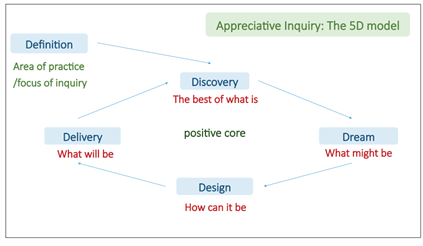Improvement Method Olympics Semi Final 1
- PDSA cycle (tool)
We can use PDSA cycles to test an idea for change by temporarily trialling a change and assessing its impact. There are four distinct stages to the PDSA cycle:
- Plan – the change that needs to be tested or implemented
- Do – carry out or test the change
- Study – data before and after the change and reflect on what is learned
- Act – plan the next change cycle or full implementation
We may not get the results you expect when making changes to our processes, so it is safer, and more effective to test out improvements on a small scale before implementing them across the board. As with any change, ownership is key to implementing the improvement successfully. If we involve a range of colleagues and service users in trying something out on a small scale before it is fully operational, we will reduce the barriers to change.

View a PDSA worksheet from the IHI.
Some additional resources for PDSA cycles
The PDSA cycle 101: video from BMJ Quality
What’s in a name: PDSA or PDCA? by @JoyFurnival
Plan, do, study, act (PDSA) cycles and the Model for Improvement by NHS England and NHS Improvement, suggested by @HassanmahmoodDr
Benefits of PDSA cycles by Jason Williams in LifeQI
An example of using a PDSA process to improve the quality of pledges that people made following a training programme by @NikkiDQIC
Evolving quality improvement support strategies to improve Plan–Do–Study–Act cycle fidelity: a retrospective mixed-methods study: BMJ Quality and Safety article suggested by @julie4clahrc
A systematic review of the application of the plan–do–study–act method to improve quality in healthcare: BMJ Quality and Safety article suggested by @julie4clahrc
Can quality improvement improve the quality of care? A systematic review of reported effects and methodological rigor in plan-do-study-act projects: article from BMC
2. Appreciative Inquiry (methodology)
Appreciative Inquiry (AI) is a way of looking at organisational or system change that focuses on doing more of what is already working. So instead of starting with ‘what’s the problem’ and looking for fixes it starts with ‘what’s already working’ and how can we build on that?
That doesn’t mean we ignore problems; we just look at them in a different way. AI is based on the principle that a group, organisation or system will grow in the direction of whatever its people focus their attention on. By creating a space for people to share experiences of when they worked at their best, not only does it stimulate energy for change; it also builds relationships and a shared understanding of everyone’s contribution.

View the Appreciative Inquiry Resource pack from the Scottish Social Services Council and NHS Education for Scotland.
Additional resources on Appreciative Inquiry
Four Appreciative Inquiry Tools, Exercises and Activities from PositivePsychology.com
Using Appreciative Inquiry with an island community in Northern Ireland by Appreciating People. Suggested by @Nardia_Joy
The Appreciative Inquiry training handbook by AGID. Suggested by @JBVISTA. Note: the link only lasts until 20th August 2021
Links to multiple articles and resources from the Cooperrider Centre, a global hub for Appreciative Inquiry. Suggested by @Charles_S_Lee
A culture of appreciation by @JeremyScrivens – ideas for creating a culture of appreciation inside your organisation
